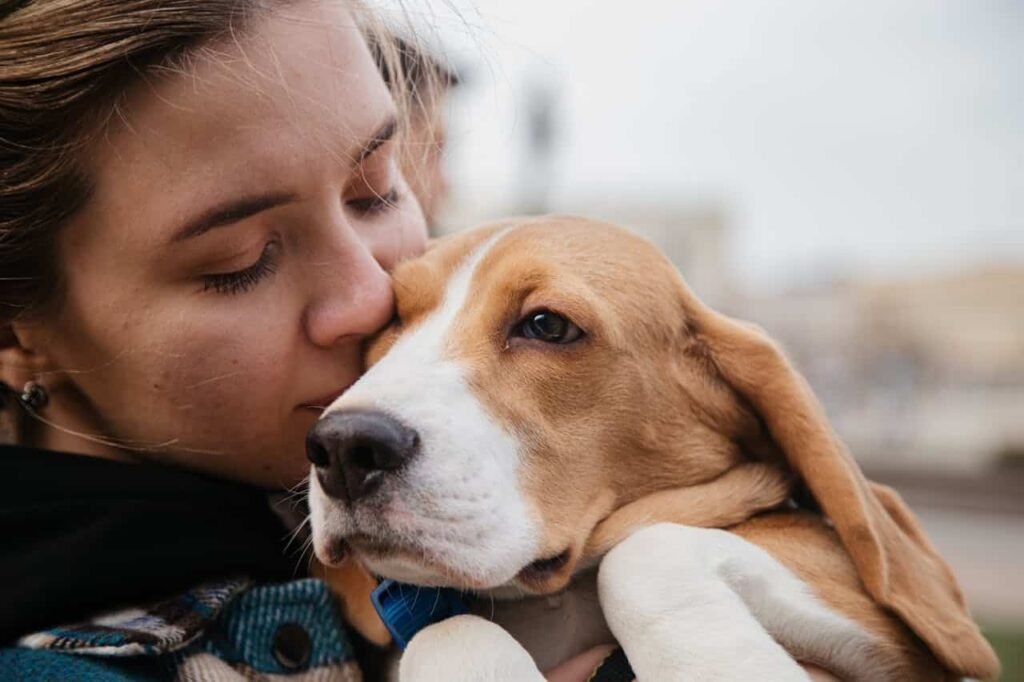How Pets Can Provide a Powerful Partnership when Dealing with Anxiety and Mental Health: The Therapeutic Power of Animal Companionship
By Jay Jacobs, LPC Associate
How Pets Can Provide a Powerful Partnership when Dealing with Anxiety and Mental Health: The Therapeutic Power of Animal Companionship

Have you ever noticed how much calmer you feel when your pet curls up next to you or gives you that look as if they know exactly what you need? As someone who’s experienced it firsthand, I can tell you that pets have an amazing ability to support us, especially when it comes to our mental health.
Whether it’s the simple comfort of their presence or the gentle routine they bring into our lives, pets have a way of easing our anxiety and grounding us in the moment. Let’s explore how pets can be powerful partners in your mental health journey.
How Pets Relieve Stress and Anxiety
Science backs what many of us already know in our hearts: animals can significantly reduce stress, loneliness, and anxiety. Research shows that interacting with pets can increase levels of serotonin and dopamine—those feel-good chemicals in our brains that help us relax and feel happy.
It’s more than just petting them, though that certainly helps! Walking your dog, playing fetch, or even watching your cat lazily stretch across the couch brings movement, a sense of purpose, and a healthy distraction from the chaos of life.
Emotional Support Animals vs. Pets: What’s the Difference?
You might have heard the term emotional support animal (ESA). These animals, usually dogs or cats, are prescribed by mental health professionals to help people cope with emotional difficulties. They don’t require special training like service animals do, but their mere presence can make a world of difference.
While emotional support animals have a formal role, all pets—whether they have a title or not—offer companionship and comfort. They give us structure, purpose, and a sense of routine, which is crucial for maintaining balance when dealing with mental health challenges.

How Pets Help Us Cope
Pets can help alleviate symptoms of many mental health conditions, including depression, PTSD, and social anxiety. The bond we form with them can provide comfort and reduce feelings of isolation. Having a pet often encourages more social interaction too—think of all the conversations started at dog parks or while walking around your neighborhood.
For people with anxiety, just having a pet nearby can be soothing. Pets don’t judge or criticize; they just are. Their simple presence helps create a calming environment and gives us something positive to focus on.
The Science Behind the Bond: How Pets Impact Our Mental Health
There’s a lot happening beneath the surface when we spend time with our pets. Interacting with them can trigger the release of oxytocin, the “bonding hormone,” which helps us feel more connected and safer. And as if that weren’t enough, spending time with our pets also lowers cortisol, the stress hormone. That’s why petting a dog or snuggling a cat can help calm us down after a tough day.
For many, the responsibility of caring for a pet creates a sense of purpose and stability. Feeding them, walking them, or even just sitting with them on the couch provides a comforting routine that’s often missing in our hectic lives.
How Different Pets Help in Different Ways
- Dogs are incredible for emotional support. Their ability to sense their owner’s feelings and respond with affection is unparalleled. Plus, they get us moving! Walking a dog not only helps our mental health but keeps us physically active, too.
- Cats, on the other hand, provide a quieter form of companionship. Their purring is known to have calming effects, and their independent nature allows us to enjoy their presence without the constant demands for attention.
- Even small animals like rabbits or guinea pigs can provide companionship and comfort. They might not need as much from us as larger pets do, but they offer the same emotional connection and sense of responsibility.
A Personal Note: My Experience with Dodger
I’ve had the privilege of experiencing this bond firsthand with my dog, Dodger. From day one, Dodger has been an incredible partner in my mental health journey. He’s improved my patience and taught me mindfulness, particularly through training sessions, which help ground me and shift my focus when anxiety strikes.
He’s been my constant companion, always reminding me (in his polite doggy way) when I need to take a break from work or go outside for a walk. He doesn’t just provide love—he helps me see the world differently, noticing things like the birds and squirrels we pass on our walks. Dodger teaches me how to live in the moment, how to find joy in the little things, and encourages me to spread kindness in the world wherever we go.
One of our favorite activities is taking trips to grab “pup cups.” It is a simple treat that brings joy, not just to the both of us, but also to those around us. Watching him interact and truly enjoy these moments helps me slow down, appreciate the small things, and stay connected to the present.
A Dose of Dodger!!

Pets Can Be Powerful Partners in Mental Health
Caring for a pet isn’t just about the love we give them; it’s also about what they give back to us. Pets help create stability, ease anxiety, and foster a sense of well-being. The routine they provide can keep us grounded, while their companionship offers unconditional support through the ups and downs of life.
Whether it’s a dog that gets you out walking, a cat that curls up beside you, or even a small animal that just keeps you company, the benefits of having a pet in your life are profound.
Key Takeaways:
- Pets can significantly reduce stress, anxiety, and loneliness.
- Emotional support animals offer therapeutic benefits, but all pets can provide love and stability.
- Caring for pets gives us purpose and helps create routines that are essential for mental health.
- Whether you have a dog, cat, or a smaller animal, the companionship of a pet can be incredibly beneficial for mental well-being.
Here are more resources for you to learn more about anxiety and how to manage your anxiety or mental health.
If you or someone you love is experiencing signs of anxiety or depression, please reach out to us using the contact form below. Remember that it is okay to ask for help.

